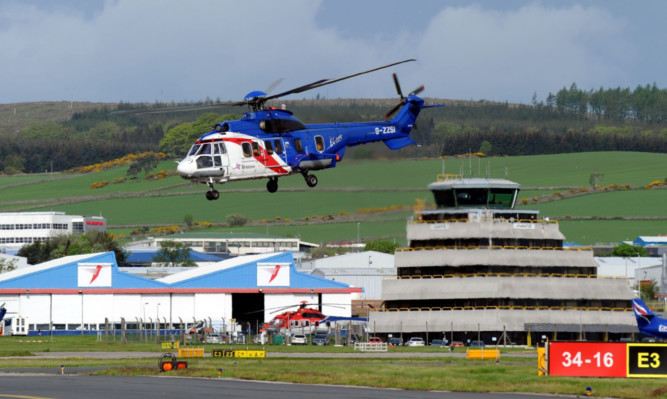Bristow Helicopters has launched a consultation with North Sea staff over potential job losses.
The total number of workers facing potential job loses stands at 130, including up to 66 pilots, in jobs across the UK.
The company said the move was in response to the “ongoing reduction” of oil and gas activity in the North Sea following the decline in global prices.
“The company has taken numerous measures to reduce costs but we have not been able to reach the level of cost reduction needed and 130 personnel may be affected by redundancy in the UK,” a Bristow spokeswoman said.
“The company is consulting with the trade unions and employees on these proposals.”
Bristow employs around 2,000 people in the UK and has five operating bases in Scotland.
The British Airline Pilots Association (Balpa) has called for a summit on North Sea jobs in light of the job losses.
“This is devastating news for the Bristow community and Balpa is doing everything it can to support pilots who are affected,” General Secretary Jim McAuslan said.
“We must now make certain that businesses all the way down the supply chain are not squeezed by the big oil and gas companies.
“The government needs to nurse the industry through this downturn so skills are not lost when the situation improves.
“Balpa is calling for a jobs summit with the Treasury, Department for Business, Innovation and Skills, the Scottish Government and the Department for Transport to take stock of the situation.
“This loss of experience is a major threat to the UK industry as well as a personal catastrophe for the individuals concerned.”
Offshore union boss Jake Molloy said the situation was “desperately sad”.
He said: “Thousands of people have already lost their jobs in the industry, at every single grade imaginable. No sector has been untouched.
“It is inevitable that those involved in transporting people offshore will be hit when there are less workers to move around.”
Mr Molloy added: “If we lose these people from the industry, it will make it all the more difficult to respond when activity levels start to pick up again.”
Earlier this week, Aberdeen Airport confirmed a drop in annual passenger numbers.
Helicopter traffic saw the biggest decrease, down -7.6% on 2014 levels.
